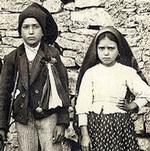Holiness comes from struggle and participation
By Dr. Jeff Mirus ( bio - articles - email ) | Nov 21, 2025
No, it’s not what you think. By participation I do not mean engaging in every possible activity—though of course participation in the life of your parish is very important. What I want to emphasize here is a more medieval concept: The participation of lower forms of being in the higher forms of being, an insight derived (if I remember correctly) from Platonism.
This idea may be difficult to grasp, so let’s take “struggle” first. As every Christian who can read this must know, there is no growth in either goodness or closeness to God without struggle. We all have inclinations toward evil, which typically arise from the world, the flesh and the devil. If we are serious Christians, we spend a large part of our lives struggling against these temptations and the habitual faults which they have engendered. I think every reader can relate to the fact that we really must struggle to make moral and spiritual progress.
But the concept of participation is somewhat arcane. It has its roots in the philosophy of Plato and, since the rise of the Roman world, philosophers and theologians have used the word participatio to describe an essential element of “being” in everything that exists beneath the fullness of God. For Plato, lower forms of life “participated” in the greater excellence of higher forms. They did not have all the strengths, virtues, and attributes of the higher forms, but they derived the excellence of their own being at least partially through participatio—that is, through their participation in the life and strength and virtues of what was above them in the hierarchy.
We can get a limited idea of how this works in real life when we notice the way some animals—especially dogs—derive a certain excellence from their participation in the life of humans. Perhaps more to the point, some of the early Church Fathers recognized this as a very useful tool in understanding how the human person derives his own excellence through participation in the life of God. This idea of the lower forms of life participating in the being of the higher forms provided a perspective for the development of the Catholic understanding of the share in the life of God that we call grace.
It is of course, precisely in the quest for holiness that we most fully experience that combination of struggle and participation which constitutes the core of the Christian life. As human persons we recognize that we have been created for a unique participation in the life of God Himself. Whatever the case may be throughout the hierarchy of living beings, we humans grow to understand that both our intellect and our free will are derived from God, for both are impossible to merely material forms of life. In other words, by nature we participate in the life of God. But precisely because this gives us a capacity for self-reflection, we also quickly realize that it is a struggle to maintain an awareness of our participation and to seek to increase it through the ongoing effort to focus on it and activate it ever more deeply within ourselves.
Though most people have little or no idea of it, the life of grace is the key ingredient of integral human development. The Christian life comes down to a combination of struggle and participation in the life of God. We cannot perfect our nature without grace, and we cannot open ourselves ever more fully to grace without a struggle. It follows that our preliminary struggle must be the struggle to make time for a growing participation in grace through both the sacraments and regular habits of prayer.
There is more to the Christian life than this, of course, such as keeping the commandments, obeying the laws of the Church, learning the Truth, and loving our neighbors as ourselves. There will always be opportunities to go deeper into the love of God, that is, to continue to increase our participatio. Moreover, this will always involve a certain amout of struggle.
Both holiness and human fulfillment come through struggle and participation. Indeed, we ought not to be surprised that holiness and human fulfillment are exactly the same thing.
All comments are moderated. To lighten our editing burden, only current donors are allowed to Sound Off. If you are a current donor, log in to see the comment form; otherwise please support our work, and Sound Off!
-
Posted by: jsg9932 -
Nov. 23, 2025 11:31 AM ET USA
Like holiness and human fulfillment, maybe struggle and participation are exactly the same thing. If I am participating in God am I not struggling? You mention loving our neighbors as ourselves as one of the other things Christians should do. Striving for the good of the other, for their own sake, for their fulfillment. But this love of other, this agape, is struggling, and it is participation in God. It's not something else Christians do, it's the thing; to put on Christ.
-
Posted by: chapman18668 -
Nov. 22, 2025 11:51 AM ET USA
Excellent point about participation but I don’t think you need look any further than Genesis for this key principle of reality. God creates us as sexual beings to bring life into the world and gives us the garden to cultivate. Adam names the animals, All of this is about participation. Plato discovers/recognizes something already deeply embedded in the Hebraic world.





